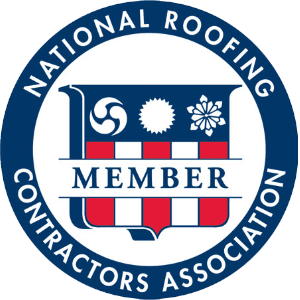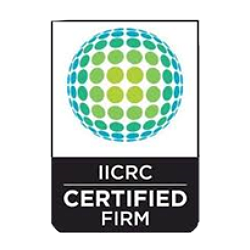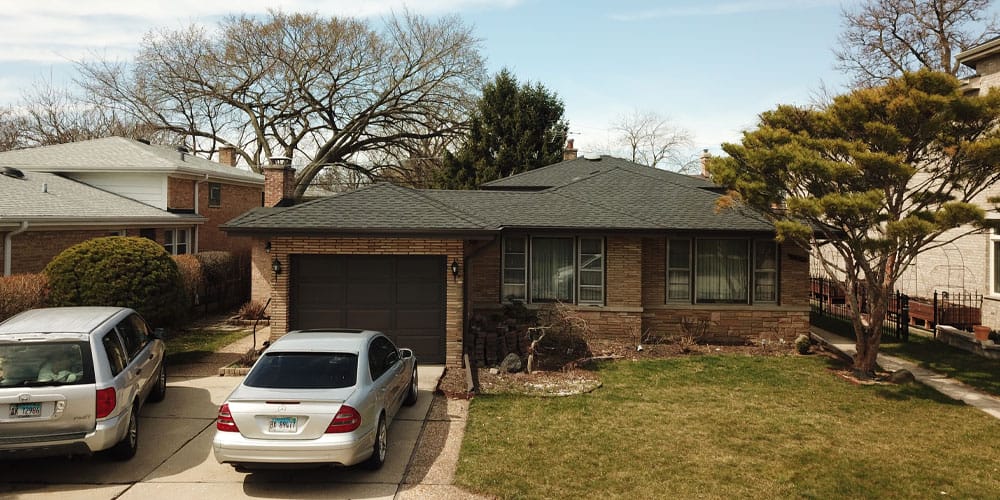residential roofing
Five-Star Residential Roofing Services in Chicagoland
From Top to Bottom, We Got You Covered
- Various Financing Options
- Lifetime Workmanship Warranty
- Insurance Claims Assistance
Our Memberships and Certifications









Unrivaled Residential Roofing Service in Glenview and Northbrook
At RS Five, we know you have choices when choosing a roofing contractor in Glenview and Northbrook. That’s why we do our best to stand above the rest with an A+ rating from the Better Business Bureau, membership in the National Roofing Contractors Association and many other accreditations and certifications that make us better roofers. When you choose us to protect your home, you can rest assured that we will do everything possible to do it right from roof repair to roof replacement.

Types of Residential Roofs We Install
ASPHALT SHINGLE ROOFING
Asphalt shingle roofing is the traditional, popular option with homeowners nationwide. That’s because it’s been around forever and has proven its value. It’s an affordable option that still allows you to choose color and style for the exterior of your home.
Metal Roofing
Metal roofs have some unique benefits that make the initial costs worth it. They can last up to 50 years and are incredibly durable. They require little maintenance and rarely need to be replaced. They’re lightweight and still strong enough to withstand extreme weather conditions.
Cedar Roofs
One of the strongest, most durable woods used in construction, cedar roofing systems are resistant to rot, decay and insect damage. They require minimal maintenance and care and are easy to install or adjust if necessary.
Tile Roofs
Tile roofing has curb appeal combined with strength and durability. Simply put, it looks great and lasts forever. These systems are energy-efficient, low maintenance and environmentally friendly. They also provide an extra layer of insulation for your home.
Slate Roofs
Slate roofing is completely fire-resistant, energy-efficient and environmentally friendly. If you choose a slate roof, it may be the last time you have to invest in a roof because it can last more than 100 years with little maintenance.
Choose RS Five as Your Residential Roofing Company
From everyday repairs to emergency services, we take pride in giving our clients peace of mind. Perfection is our goal, and we collaborate with our customers to reach it.
Aren’t sure about the differences in each roofing system? We’ve got your back, and we’ll explain the benefits of each when we provide your estimate.
From Top to Bottom, We Got You Covered
 Danny Pagan2023-12-10What a professional Company. RS five did the roof on my house and they took care of handling everything. The Communication was great with no detail left behind. I Highly Recommend them.
Danny Pagan2023-12-10What a professional Company. RS five did the roof on my house and they took care of handling everything. The Communication was great with no detail left behind. I Highly Recommend them. Art_ Killer_Z2023-11-04Buenos precios y buen lugar
Art_ Killer_Z2023-11-04Buenos precios y buen lugar Maria McIntire2023-09-15Had an excellent experience with RSFive getting a new roof and gutters installed! They were fast, efficient and very clean! Highly recommend.
Maria McIntire2023-09-15Had an excellent experience with RSFive getting a new roof and gutters installed! They were fast, efficient and very clean! Highly recommend. Marv Ruback2023-09-14Excellent workmanship. Excellent follow-up. Excellent quality. Very response for follow-up.
Marv Ruback2023-09-14Excellent workmanship. Excellent follow-up. Excellent quality. Very response for follow-up. Emily Fabbri2023-07-15RS Five replaced the roof on our house and we are very happy with it. Steve and his team took care of everything with insurance, which saved us a lot of headaches. I never even had to speak to my insurance agent, Steve handled it all - amazing! The team that installed the roof was professional, punctual and did great work. They swept the yard many times for nails and covered bushes/our ac unit/etc with tarps. We were happy with our experience!
Emily Fabbri2023-07-15RS Five replaced the roof on our house and we are very happy with it. Steve and his team took care of everything with insurance, which saved us a lot of headaches. I never even had to speak to my insurance agent, Steve handled it all - amazing! The team that installed the roof was professional, punctual and did great work. They swept the yard many times for nails and covered bushes/our ac unit/etc with tarps. We were happy with our experience! Tara Nicole2023-06-30Who knew filing an insurance claim could be stress free? Steve was wonderful to work with. Always available to answer questions and very personable and professional. The crew was able to get my roof installed quickly and did amazing, quality work. The whole claim process was fast and easy. I would highly recommend RS Five! They truly go above and beyond. Thank you!
Tara Nicole2023-06-30Who knew filing an insurance claim could be stress free? Steve was wonderful to work with. Always available to answer questions and very personable and professional. The crew was able to get my roof installed quickly and did amazing, quality work. The whole claim process was fast and easy. I would highly recommend RS Five! They truly go above and beyond. Thank you! Gayland Jacobs2023-06-26The crew really took the time to do an amazing job. They were fast and courteous of all my flowers. They protected them and got up ALL their garbage. I’ve not found any nails. The public adjuster they referred me to took my claim and fought hard to get me back to the way I was. I’d refer them 1000%.
Gayland Jacobs2023-06-26The crew really took the time to do an amazing job. They were fast and courteous of all my flowers. They protected them and got up ALL their garbage. I’ve not found any nails. The public adjuster they referred me to took my claim and fought hard to get me back to the way I was. I’d refer them 1000%. Nancy Borowsky2023-06-13Steve, Marty and crew were great to work with and helped us navigate our roof claim and used quality roofing materials. The crew did a good job cleaning up after the installation. I would totally recommend RS Five roofing.
Nancy Borowsky2023-06-13Steve, Marty and crew were great to work with and helped us navigate our roof claim and used quality roofing materials. The crew did a good job cleaning up after the installation. I would totally recommend RS Five roofing. christine winter2023-06-13Steve is wonderful to work with. Takes care of all the business to see through the job gets done. Always available to answer any questions. The roofing crew did a fabulous Job 100%! I Highly Recommend. Thank-you Steve and Crew.
christine winter2023-06-13Steve is wonderful to work with. Takes care of all the business to see through the job gets done. Always available to answer any questions. The roofing crew did a fabulous Job 100%! I Highly Recommend. Thank-you Steve and Crew. Eddy Doherty2023-06-08I had a great roofing experience with RS Five. Steve was very personable and was always available to call. They answer your questions honestly and directly. I am very happy with my new house and garage roof. They use quality materials and thoroughly cleaned up after the job was done. As a satisfied customer, I would highly recommend RS Five!
Eddy Doherty2023-06-08I had a great roofing experience with RS Five. Steve was very personable and was always available to call. They answer your questions honestly and directly. I am very happy with my new house and garage roof. They use quality materials and thoroughly cleaned up after the job was done. As a satisfied customer, I would highly recommend RS Five!
